Do you frequently cook and want to know How to Care for Your Cookware? You’ve come to the right place.
Cookware is an expensive purchase, so learning the best techniques to clean your cookware improves the function of your cookware and reduces the cost of your purchase.
Cookware should last for years if properly maintained. However, to keep your pots and pans in decent form, you must properly care for them, which varies depending on the material. Check out our Cookware Buying Guide if you’re unsure which cookware is right for you.
Tips For Maintaining Your Cookware
Read the Instructions
When it comes to cookware, it is essential to read the instructions and product care guides before using your pots and pans, as not reading them can damage them and affect their performance and appearance.
All cookware comes with small instructions and guides that show how to use, store, and care for your pots and pans for a better cooking result. Check out our product care recommendations to ensure that all of your cookware is performing at its best.
Never use the same pot or pan for everything
No matter how well you care for your cookware, food will cling or burn to the pan, and water spots will appear, so knowing how to deal with these concerns is crucial to extending the life of your cookware.
When you know what each material requires, you can avoid damaging your pots and pans.
Use the Correct Kitchen Utensils
When cooking with pots or pans, kitchen equipment such as spoons and spatulas are perfect since they allow you to carefully stir your meal for consistent results and avoid scorching the food to the top.
Utensils made of nylon, wood, or silicone are smoother on your cookware, especially when it has a nonstick coating, and will assist in preventing scratches.
Care for Stainless Steel Pots and Pans
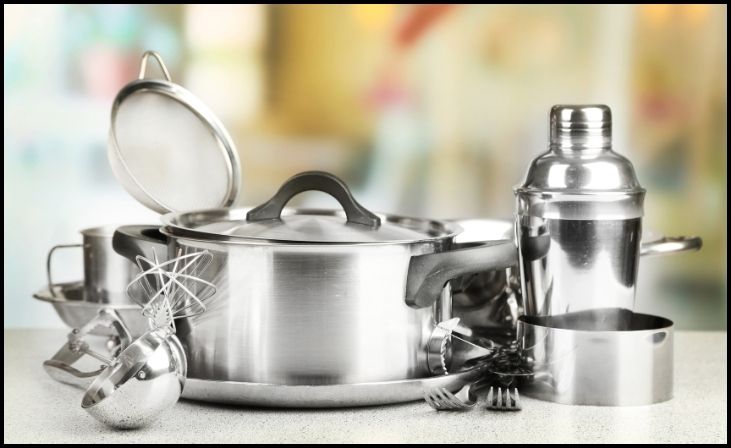
Cookware made of stainless steel is known for its durability; the best way to extend the life of your pots and pans is to take proper care of them.
Cleaning stainless steel is more accessible as it doesn’t rust or scratch. You may also wash these pots and pans in the dishwasher because they’re tough. For hand washing, use hot water, dish soap, a scouring pad, and a sponge.
To avoid stains, immediately wash stainless steel with soap and water after each use. Just be careful not to soak hot pans in cold water since the sudden decrease in temperature may cause them to warp.
Care for Anodised Pots and Pans
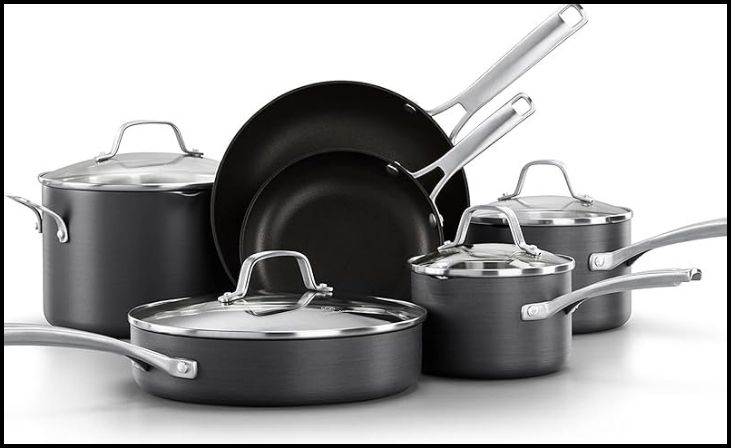
Anodized pots and pans are extremely conductive and lightweight, making them ideal for consistent cooking. However, if your anodized pots and pans don’t have a nonstick coating, don’t use them for cooking acidic foods since the coating will wear away, and the metal will discolor.
To avoid harming the anodized body, cook on low to medium heat. Scrubbing pads, rough sponges, and steel wool can scratch the coating, affecting the appearance of anodized cookware.
Care for Cast Iron Pots and Pans
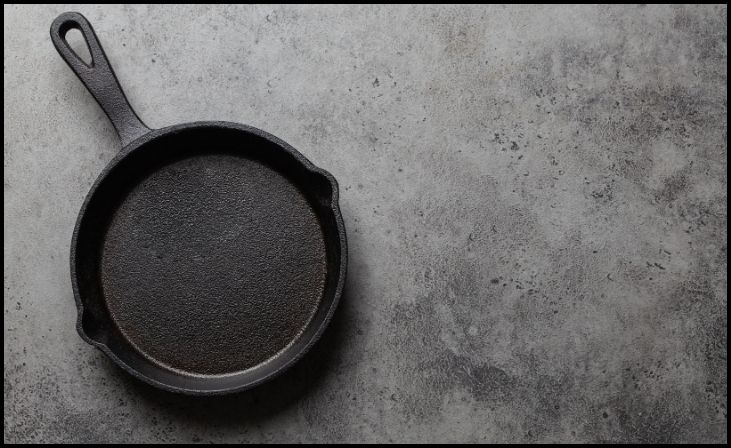
Cast iron pots and pans must be seasoned regularly. It entails keeping a thin layer of oil on the surface. Then, place the cast iron pan on low heat and distribute it evenly for a uniform finish. To retain a nonstick surface, you should season your cast iron cookware before using it.
Cast iron pots and pans are not dishwasher safe because they will lose their seasoning and become corroded. If you notice any rust spots, scrub rust areas with steel wool and a little vegetable oil if necessary.
Care for Nonstick Pots and Pans
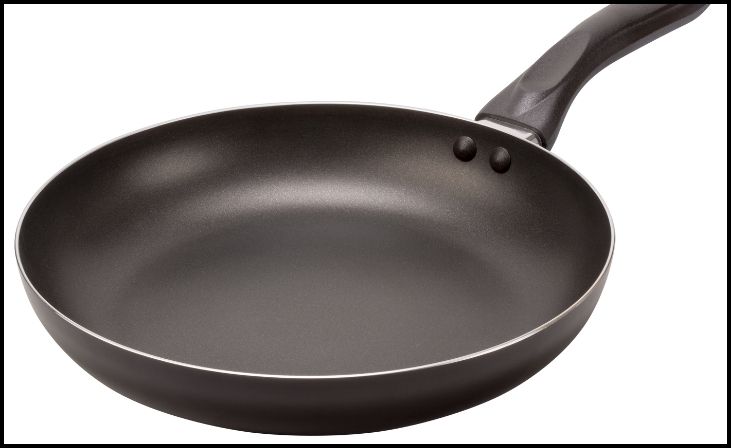
Nonstick pans are sensitive and need more care and attention, so pay special attention to how you use them. For example, avoid using metal spatulas, tongs, and other instruments that could scratch the surface.
Read the care instructions. Most aren’t supposed to be washed in the dishwasher but can be cleaned with hot water and dish soap. Scrub burnt-on food with plastic or nylon scrubbers.
To get rid of sticky particles of food, mix baking soda with water. Alternatively, bring water and vinegar to a low simmer and cook for 10 minutes before cooling. Thoroughly clean and dry. Wash the pot or pan as usual, then re-grease it once it has dried.
Care for Aluminum Pots and Pans
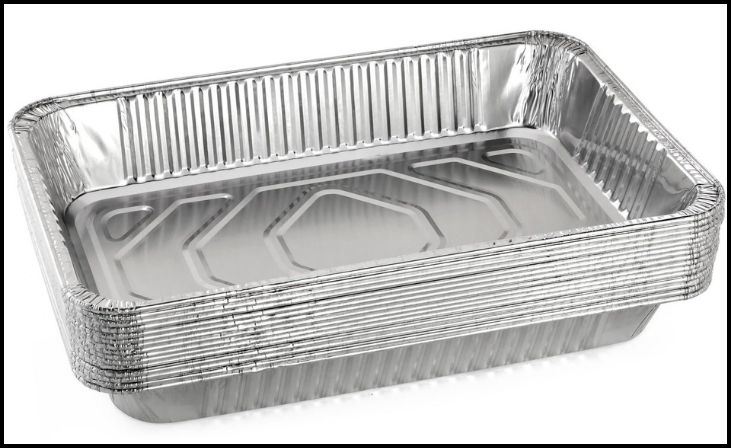
Aluminum is a reactive metal; acidic foods should not be cooked in these pots and pans. Instead, hand washes your aluminum cookware with hot water, mild dish soap, and a non-scratch sponge or pad when it’s time to clean it.
In a pan, add water, white vinegar, or lemon juice to reduce the staining that occurs naturally over time.
Care for Copper Pots and Pans
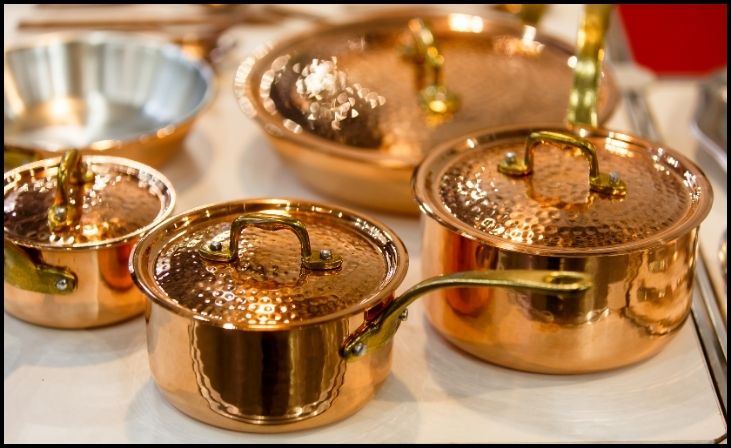
Copper is very reactive, acidic foods, such as tomato sauce, should not be cooked in copper pots and pans.
Copper cookware should always be cleaned by hand with hot water, dish soap, and a nonstick sponge or soft brush. Do not scrub, which can damage the tin lining. Instead, rinse well after washing with hot soapy water. Always completely dry copper after cleaning. If you neglect this stage, the copper’s red-orange color and shine may fade faster.
Clean the cookware’s exterior using a white vinegar and salt solution, then rinse and polish. Alternatively, you might use a commercial copper cleaning.
Care for Carbon Steel Pots and Pans
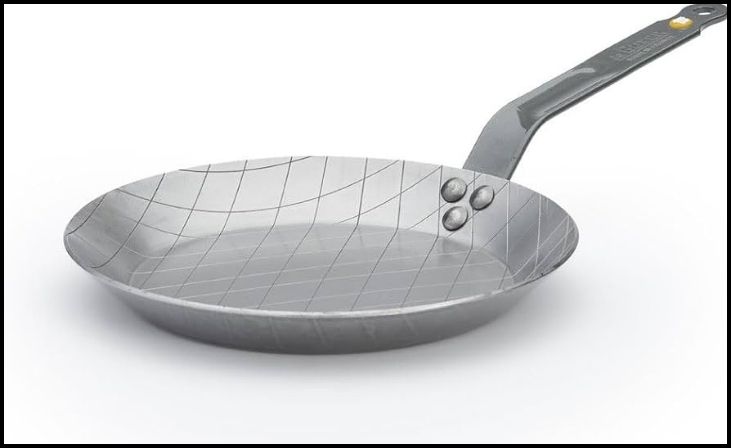
With a paper towel or cloth, wipe away as much food residue as possible. If any stuck food particles remain, you can loosen them with boiling water in your cookware before scraping them away with a metal spatula.
Your cookware will need to be re-seasoned, which entails heating a tiny amount of oil on the stove, allowing it to smoke, and then allowing it to cool.
Conclusion
The lifetime of cast iron cookware depends on proper maintenance, while stainless steel cookware is easy to clean and non-reactive. Because of its softness, aluminum cookware requires special care, but it is also useful because it is light and inexpensive.
Whatever option you choose, we hope this article has given you a better understanding of how to properly maintain your pots and pans.
Check Out Our Cookware Material Guide

Leave a Reply